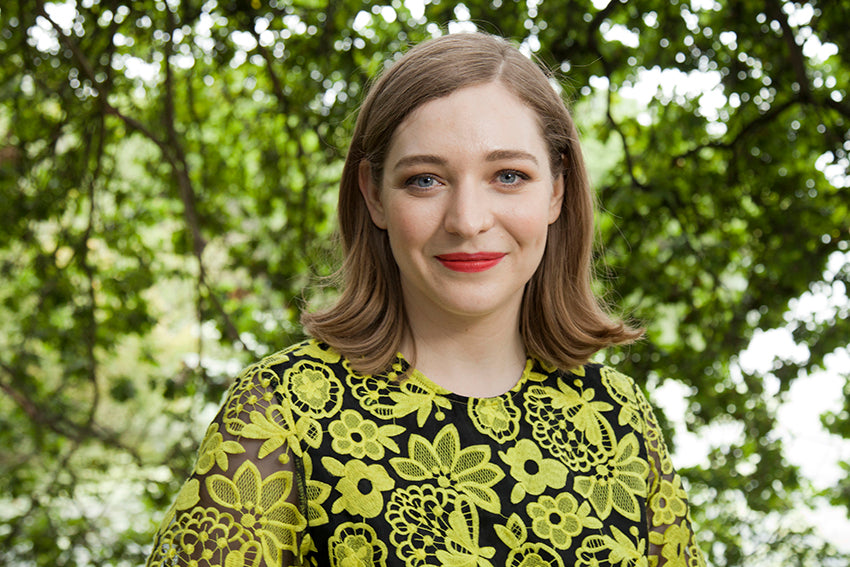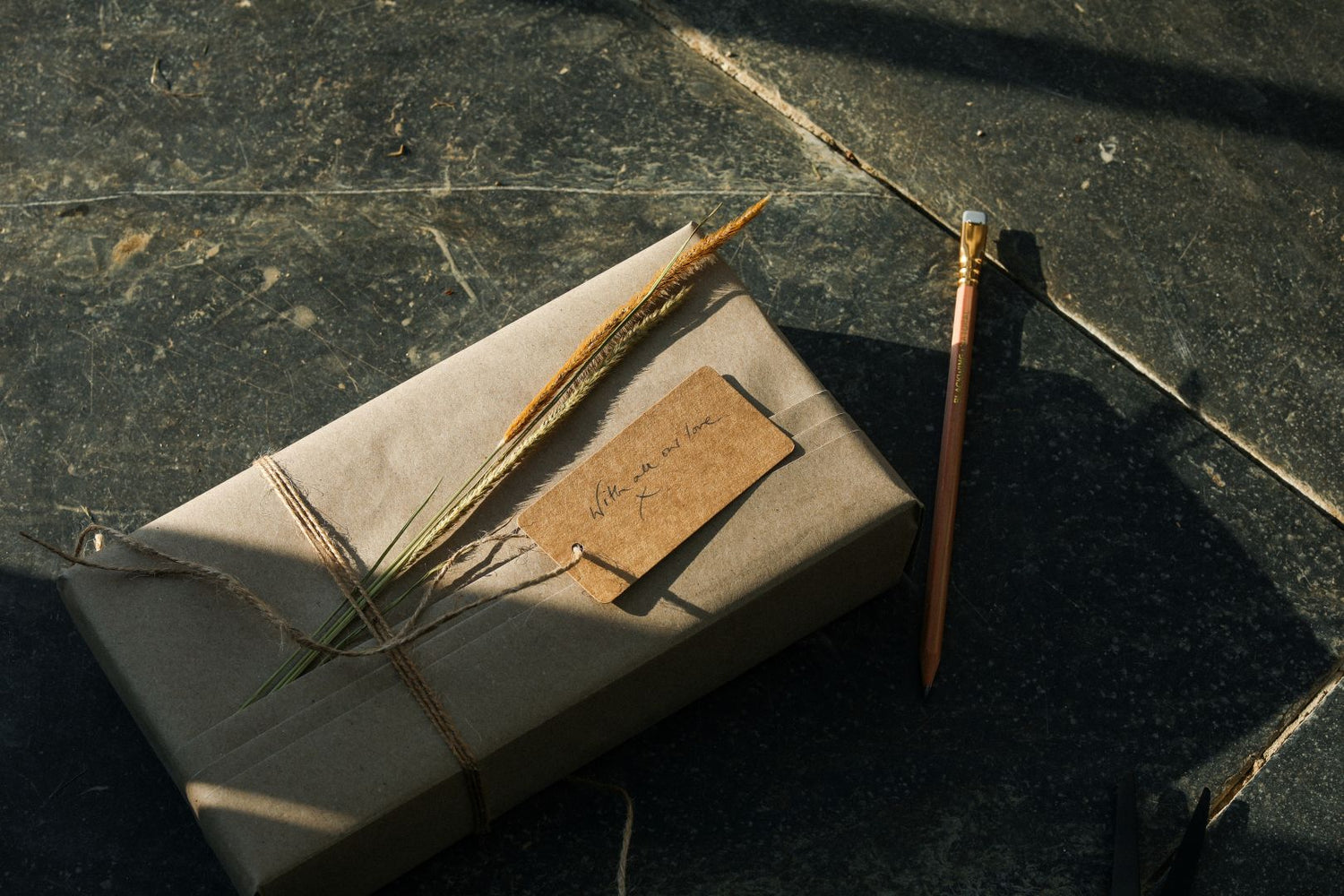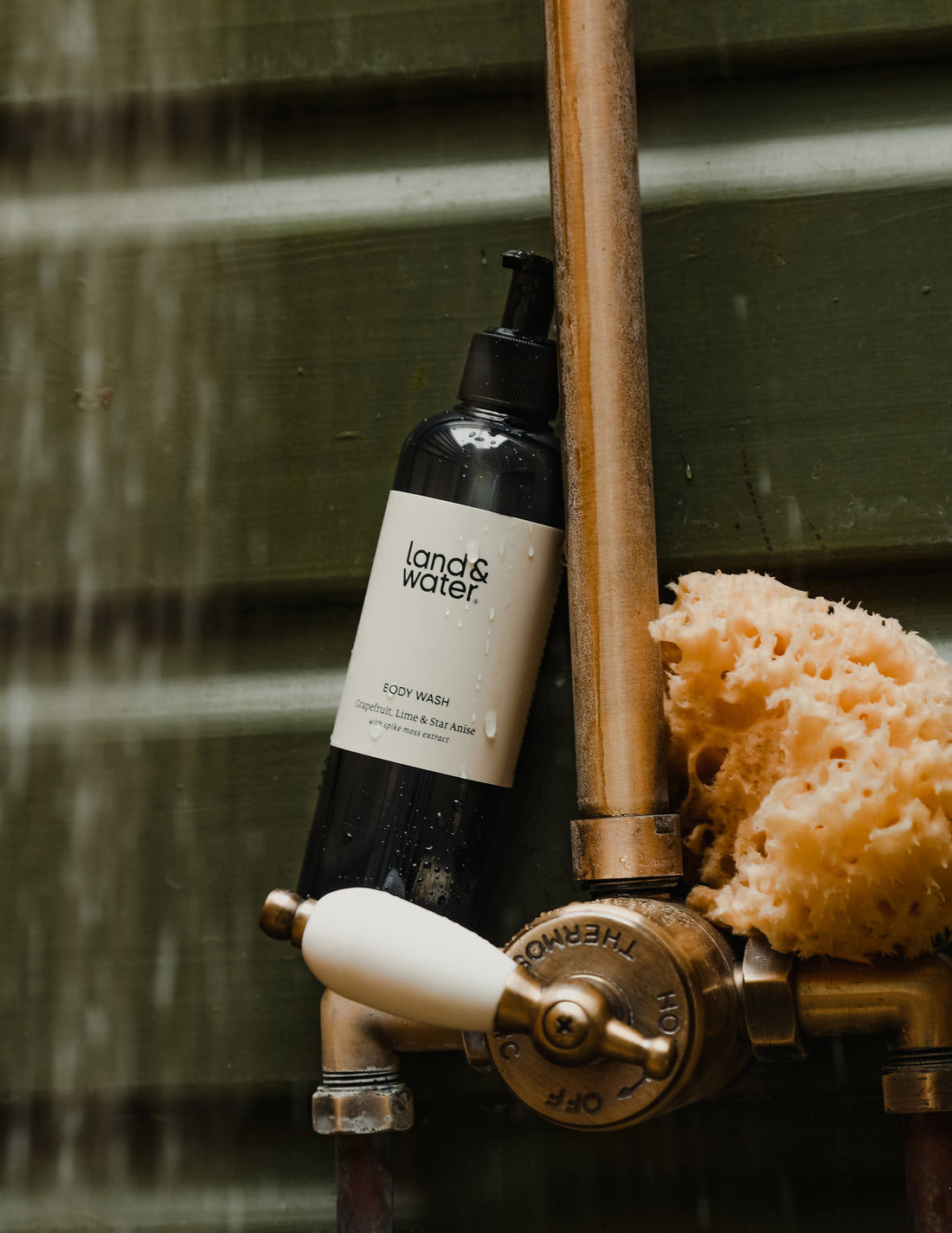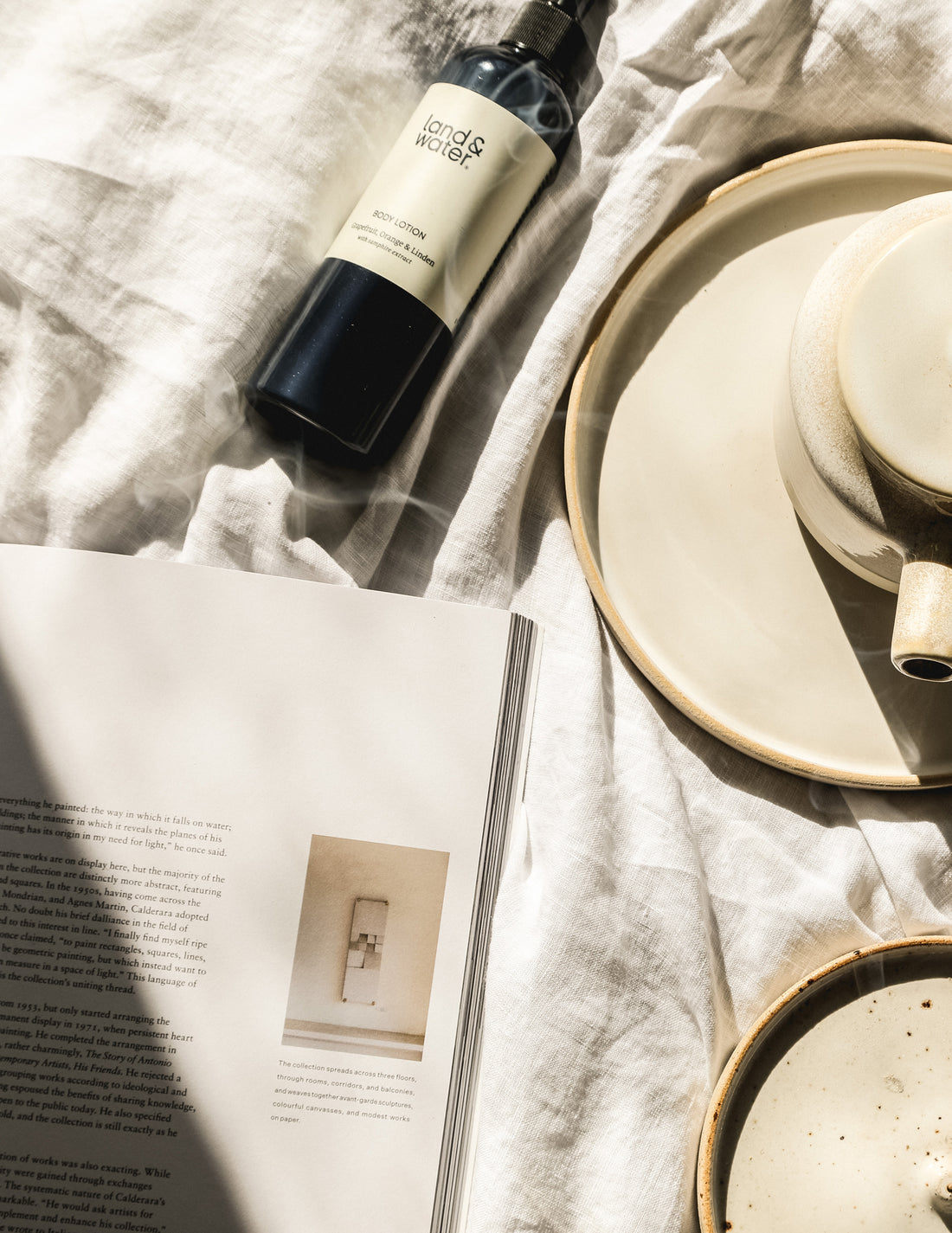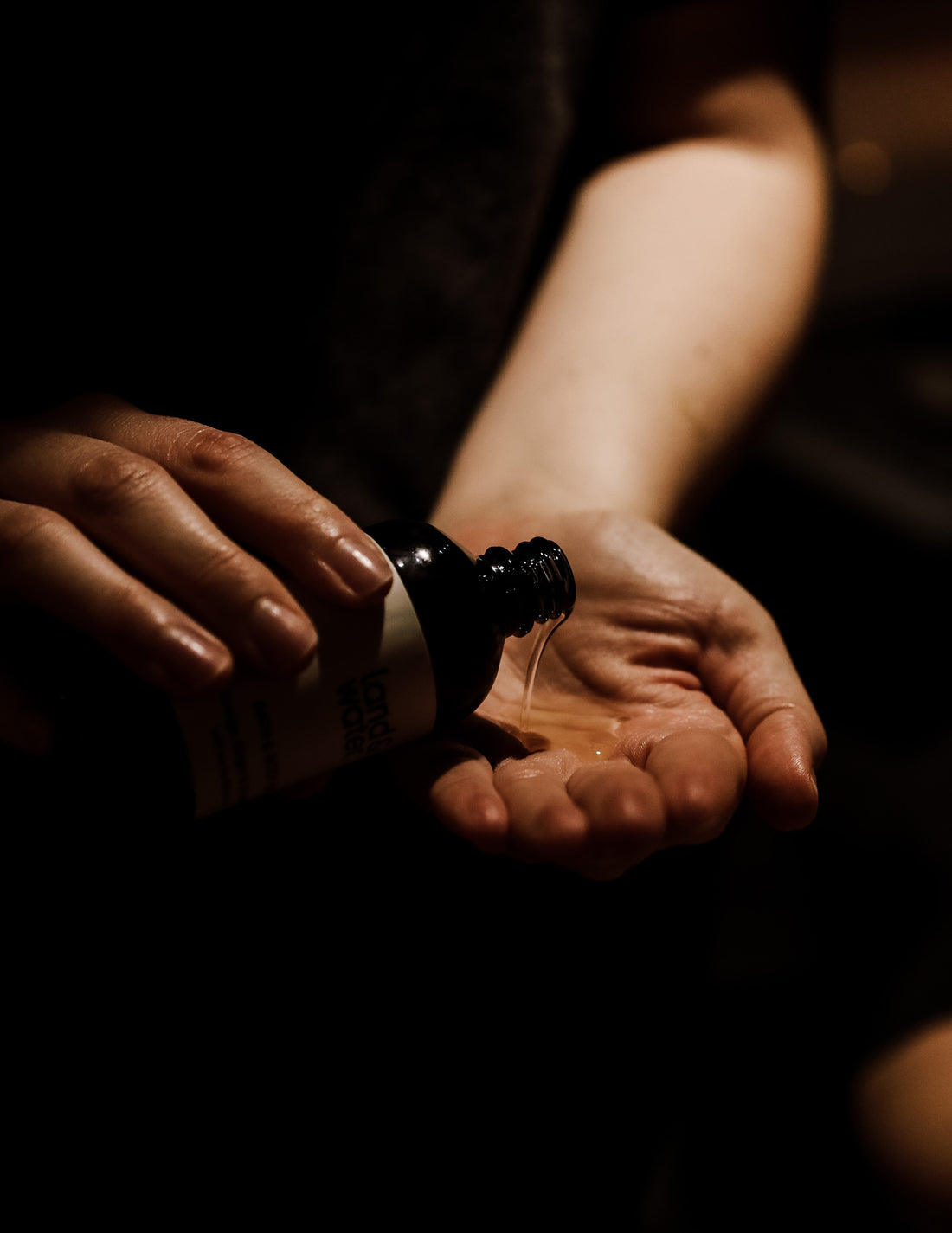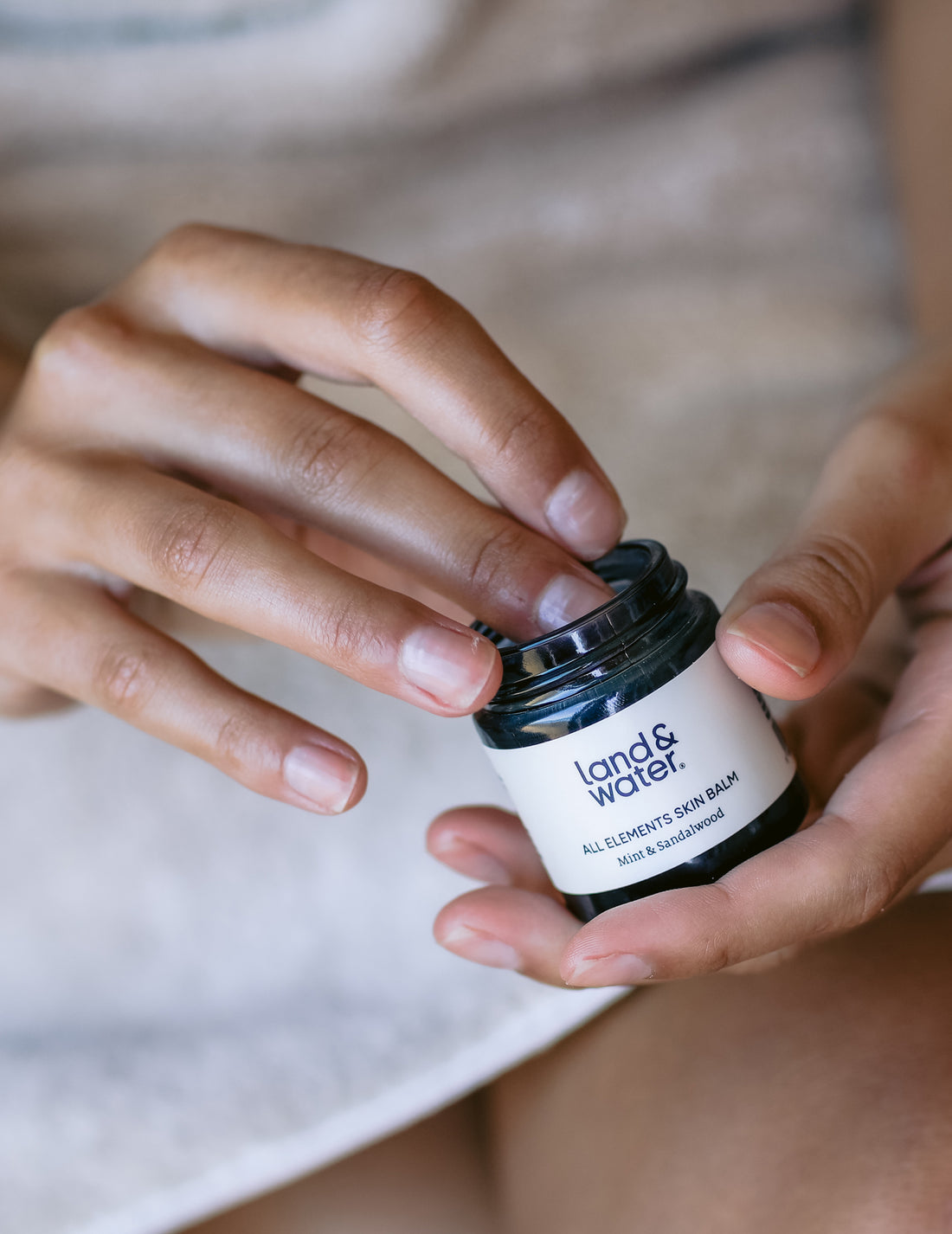A perfume author and scent consultant who loves the smell of tar, talks about the joys of losing herself on an old railway line in the woods, finding herself in the slow art of Japanese bathing, and embracing the British mizzle.
I always want to tell people that I don’t have a better sense of smell than anyone else. Lots of people think that there are these experts with amazing noses and then everyone else who’s not very good at smelling, and I really don’t think that’s true. But when I’m out and about I’m always thinking about it, so more likely to be conscious and noticing what I’m smelling – I suppose in the way that a graphic designer is probably on the look-out for interesting signage or a sculptor is looking at interesting shapes.
I have lots of favourite smells. Smoky smells, like lapsang souchoung tea, I’m obsessed with. And I definitely inherited from my mum a love of the smell of tar when the roads are being set. When I was a child we’d be walking the streets and she’d go, ‘Oh, smell that tar!’ Although I think I was totally conditioned to be into it. Then there are certain types of vinyl smells or plastics. It probably goes back to when I had toys as a child, and toys had particularly distinctive smells so I always have a strange sense of being comforted when I come across some sort of material that’s probably not allowed anymore in manufacturing! And then obviously lots of nature smells: I adore anything from pine through to sweet peas. And roses – which feels boring, but I love the different nuances and different types of roses and how broad the scent range can be there. When I’m in a rose garden I’m definitely smelling rather than looking at them.
We didn’t really go on holidays abroad when I was a child – it was always the South West. I have lots of memories of being in rock pools. Not so much being in the sea, but scrabbling around alongside it and having it there by my side and being in the rock pools, looking for seaweed and interesting shells and being on the edge of the beach.
I love spending time outside. Ideally it would be much more wilderness based, but logistics and practicalities don’t really enable that at the moment. Right near where I live we do have a lot of green space, and one of my favourites is this old disused railway line called Parkland Walk, which sweeps around a lot of the north of London and it’s been turned into a sort of wilderness walk now. There’s almost an illusion of being in the middle of a woodland because when you look ahead and behind you, you feel you could be in the middle of the countryside. It’s almost tunnel-like in some places, and it’s only when you turn to the side you realise, ‘Oh, there’s Finsbury Park!’ or, ‘There’s a road!’ But you can trick yourself quite well that you’re not there. I go there a lot and enjoy walking along it, because you get this sort of switch in mode or way of thinking that makes you feel the same as when you’re somewhere that’s quite remote. It’s really important for me; I like those sorts of places. It weaves through everyday life but has this other worldly feel.
I always loved books like The Secret Garden and Tom’s Midnight Garden, and the idea you don’t think you have that type of space but then it appears, even if it’s imaginary. There can be little pockets hidden in plain sight.
My relationship with the elements has really changed in the last few years. For a lot of my life I was very British in that desire for moderation. We’re always complaining about extremes, like, ‘Oh, it’s too hot’ or ‘Oh no, I don’t like this drizzle’ – there’s this fictional perfection in the weather that we want. It’s only been in the last couple of years that that sense of wanting to control the elements or being dissatisfied has disappeared. If it’s drizzly or a typical mizzly day in England, then that is what it is, and I just make the most of it and enjoy it. I’m a lot more likely to accept the seasons now and be grateful for them. Maybe it’s as you get older and the cycles come faster and faster, and the years go faster and faster, I just know it will change and so try to enjoy how things are.
A few years ago I went to Japan and got really into onsen and the hot springs bathing. It was such a beautiful ritual. When you do Japanese bathing, you sit on a little stool and you have a shower-head or a bucket of spring water, and clean yourself off with soap before going into a tub or into a hot spring. The idea is you’re not using the bath to get clean; there’s no product in there and the water’s totally clear. A lot of the tubs are lined or made from cedar wood so it’s intensely aromatic (the smell of Japanese cedar or Hinoki wood is definitely one of my favourites, too). You might be outside by a waterfall or it could be quite foresty, or somewhere more man-made, and you just sit and there and it’s very still. There’s no swimming or sloshing around. They’re quite deep, so you’re submerged.
I find different forms of bathing culture really enjoyable. The Japanese one was so fun but also the different stages you go through to prepare your body and your mind for it. It’s very considered. You don’t just run in, you have to make yourself ready. And that I thought was really beautiful. There’s obviously that alternative ‘dive into the water’ style; that bracing, chuck yourself in. But then I’ve discovered another way of being in water which is much more slowed down which I think is just as interesting.
I recently read ‘Being a Beast’ by Charles Foster. It’s a non-fictional account of his experiences living as different animals in Britain, for sometimes a few weeks. He lived as a fox! It’s an incredible book, because he tries to approximate how an animal responds to its world through the senses and what senses are important; how a fox navigates time and place in a totally alien way to us. And so with each animal you have a totally different way of thinking, which is absolutely exhilarating to read. There’s a brilliant chapter where he goes in a river and tries to be like an otter. It’s amazing. It’s all about how otters need speed and how they use the currents and how they’re so fast in how they respond to sensory input… I’d really recommend it to anyone.
+
Lizzie Ostrom is the author of Perfume: A Century of Scents, published in the UK by Hutchinson. She’s also a broadcaster, consultant and author, who has worked with the Tate, Radio 4, Monocle, Liberty of London, and the Royal Institution.


